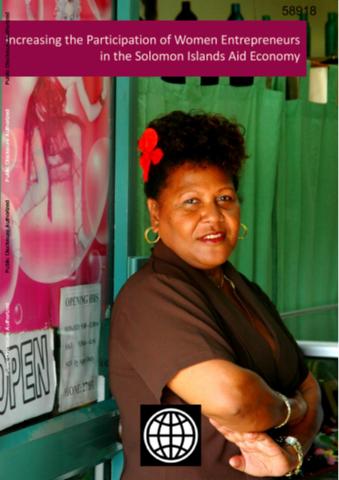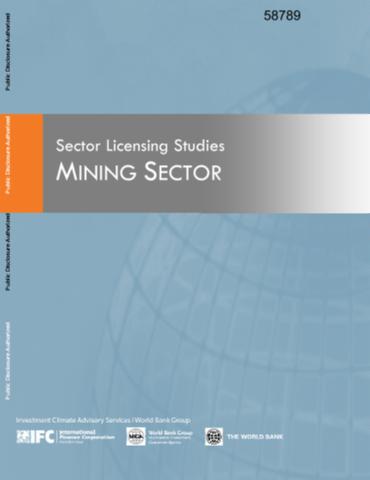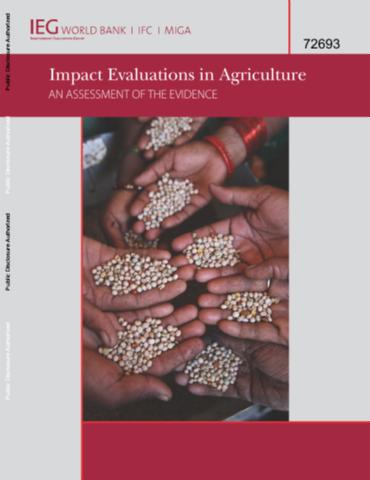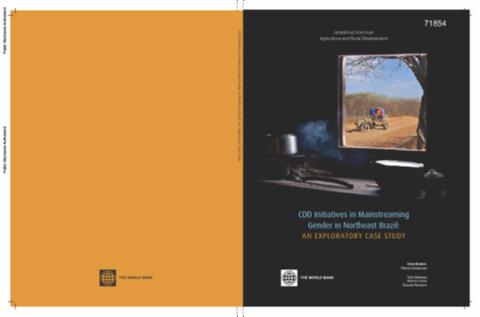The World Bank is a vital source of financial and technical assistance to developing countries around the world. We are not a bank in the ordinary sense but a unique partnership to reduce poverty and support development. The World Bank Group has two ambitious goals: End extreme poverty within a generation and boost shared prosperity.
- To end extreme poverty, the Bank's goal is to decrease the percentage of people living on less than $1.25 a day to no more than 3% by 2030.
- To promote shared prosperity, the goal is to promote income growth of the bottom 40% of the population in each country.
The World Bank Group comprises five institutions managed by their member countries.
The World Bank Group and Land: Working to protect the rights of existing land users and to help secure benefits for smallholder farmers
The World Bank (IBRD and IDA) interacts primarily with governments to increase agricultural productivity, strengthen land tenure policies and improve land governance. More than 90% of the World Bank’s agriculture portfolio focuses on the productivity and access to markets by small holder farmers. Ten percent of our projects focus on the governance of land tenure.
Similarly, investments by the International Finance Corporation (IFC), the World Bank Group’s private sector arm, including those in larger scale enterprises, overwhelmingly support smallholder farmers through improved access to finance, inputs and markets, and as direct suppliers. IFC invests in environmentally and socially sustainable private enterprises in all parts of the value chain (inputs such as irrigation and fertilizers, primary production, processing, transport and storage, traders, and risk management facilities including weather/crop insurance, warehouse financing, etc
For more information, visit the World Bank Group and land and food security (https://www.worldbank.org/en/topic/agriculture/brief/land-and-food-security1
Resources
Displaying 4531 - 4535 of 4907Increasing the Participation of Women Entrepreneurs in the Solomon Islands Aid Economy
International aid flows are equivalent to almost half of Solomon Islands' economy, making it one of the most aid-dependent countries in the world. Around US$250 million of non-military aid enters the country, but only 15-20 percent of this amount is spent locally through local procurement or staff expenditure. Solomon Islands are currently highly reliant on logging for export receipts, Government revenues, and employment. But existing stocks of natural forest logs are expected to be entirely exhausted by 2014.
Sector Licensing Studies
This report is intended to provide guidance on best practices in mining licensing, based on examples from low, middle and high income countries in Africa, Asia, North America, and South America. It is not a 'how-to guide' or a licensing implementation toolkit, but rather identifies certain common features of successful mining licensing regimes worldwide that other national or sub-national jurisdictions might usefully incorporate in new mining laws and regulations or revisions or existing ones.
Impact Evaluations in Agriculture
This report seizes the opportunity to learn from existing evidence by analyzing lessons derived from impact evaluations produced between 2000 and January 2009 to begin to discern what has been effective in agriculture. It is part of a broader effort being undertaken by the Independent Evaluation Group (IEG) of the World Bank to understand how impact evaluations can help improve performance and broadly disseminate those lessons.
Paying Taxes 2011
Taxes are the price you pay for civilization. Taxes provide government revenues, and those who pay them have a stake in the system and in how government spends its money. Taxes are lifeblood of a stable and prosperous society. In the wake of the global economic downturn levying tax in even more difficult. With large structural deficits in the big developed economies, fiscal policy has never been under so much public scrutiny.
CDD Initiatives in Mainstreaming Gender in Northeast Brazil
The present study focuses on gender while analyzing the effects of the Rural Poverty Reduction Project (RPRP) on the use of time and income generation as well as on cultural and social capital aspects. The study was based on a pilot project in Rio Grande do Norte designed to reinforce actions of the RPRP's focus on gender. The study should be viewed only as an exploratory evaluation that can be indicative of project effects, since the sample used was small and the time span between the subproject's implementation and the collection of impact data was short (only one year).










